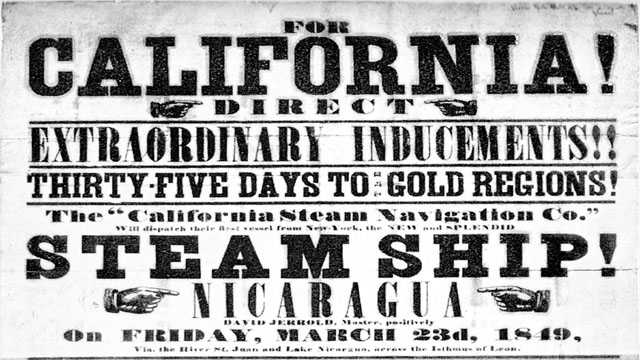December 5th is the anniversary of the true start of The California Gold Rush in 1848. On this day, the US president officially confirmed the discovery of gold in California, beginning the movement of over 300,000 new settlers to the area. This would ultimately lead to the annexation of California by the US regime, and the estimated deaths of over 120,000 native peoples in the California Genocide.
California at the time was a lawless place, having just been conquered from Mexico earlier in the year. The prospectors brought by the gold rush were initially of mixed origin, but as claims started to become more scarce, the Anglo-Americans quickly started ramping up their hostility towards races deemed inferior. By this point, manifest destiny was a commonly held view, having been officially endorsed by the president 3 years earlier. Combined with a devout belief that they were racially superior to the native people, this set the stage for mass murder in the name of racial purity. The first US Governor of California, Peter Burnett, had this to say about being “forced” to exterminate the Indians:
That a war of extermination will continue to be waged between the races until the Indian race becomes extinct must be expected. While we cannot anticipate this result but with painful regret, the inevitable destiny of the race is beyond the power or wisdom of man to avert.
In 1848, nearly a third of the remaining native population in the US was located in California, over 150,000 strong. Over the next 12 years, that would drop to 35,000. By 1900, it was under 16,000, and the settlers numbered over a million. The methods for their extermination were many. The first step of course was to take their land and sell it to white settlers. Left on worthless lands, survival became a struggle. Diseases spread rampantly, and food was difficult to come by. When faced with starvation, tribes would then steal cattle or other food. White settlers would then retaliate with mass murder. The regime funded death squads to hunt down and kill any Indians they could find. These were not isolated incidents. Although slavery was officially banned, an exception was made for Indians. This of course was running in parallel to the destruction of the land by invasive mining techniques, which further reduced the native tribe’s ability to provide for themselves. Eventually, the regime would move on to kidnapping children and forcibly sterilising women. These policies would run well into the late 20th century.
But let’s not forget that it wasn’t just the native populace affected by the eugenics laws. Asian immigrants were also outcast from society and freely slaughtered. They were subject to racial taxes and immigration quotas not enforced upon white settlers. Today, discrimination is once again on the rise.

